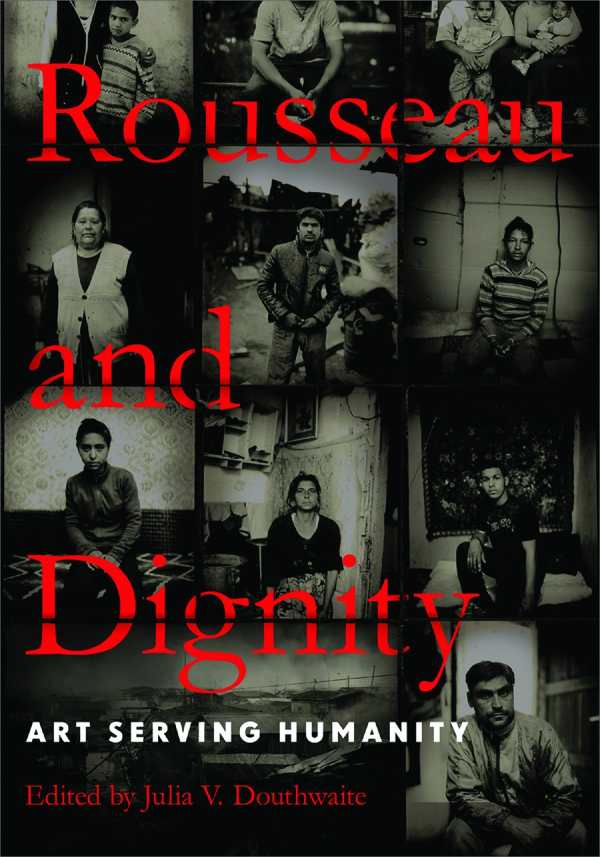Rousseau and Dignity
Art Serving Humanity
Theoretical discourse meets real life accounts of dignity in context—a juxtaposition the philosopher would have approved of.
Rousseau and Dignity: Art Serving Humanity commemorates the 2012 University of Notre Dame lecture series dedicated to philosopher Jean-Jacques Rousseau and his idea of a social contract. It features essays, articles, and images that capture a variety of perspectives from that retrospective, and from reactions to it.
The essays skew toward the academic, with professors considering different aspects of Rousseau’s work. Andrew Billing looks at Rousseau’s earlier—and, in the author’s eyes, oft-ignored—writings about cosmopolitanism, arguing that understanding it could have implications for war and peace. A translated essay by Serge Margel examines Rousseau’s “Dialogues” and other works in which the philosopher wrote about himself from a third-person perspective, trying to reflect how he thought others saw him, while a piece by Philip Stewart takes a similar approach to Rousseau’s attempts to write objectively about himself.
The book includes ten essays about Rousseau and his work, looking at him through disparate lenses from the Occupy movement to the works of Tocqueville and Kant. Some articles are more accessible than others, but they combine to give a well-rounded perspective on what Rousseau’s writing still means centuries later.
The most intriguing parts of Rousseau and Dignity are its photojournalism sections, featuring more than fifty images from five countries: Egypt, Mexico, Macedonia, India, and Nigeria. The journalists involved in this part of the project, sponsored by Amnesty International, looked at “dignity” in these modern settings and included short reports on the locations and people depicted. Jean-Francois Joly looked specifically at the Roma population of Macedonia, which faces discrimination and a lack of official recognition, with portraits of individuals and families and descriptions of their living conditions.
Photo chapters enhance essay ones, marrying theoretical discourse on dignity with real stories of what dignity means in context—a juxtaposition of which the Rousseau of “Dialogues” would approve.
Reviewed by
Jeff Fleischer
Disclosure: This article is not an endorsement, but a review. The publisher of this book provided free copies of the book to have their book reviewed by a professional reviewer. No fee was paid by the publisher for this review. Foreword Reviews only recommends books that we love. Foreword Magazine, Inc. is disclosing this in accordance with the Federal Trade Commission’s 16 CFR, Part 255.

